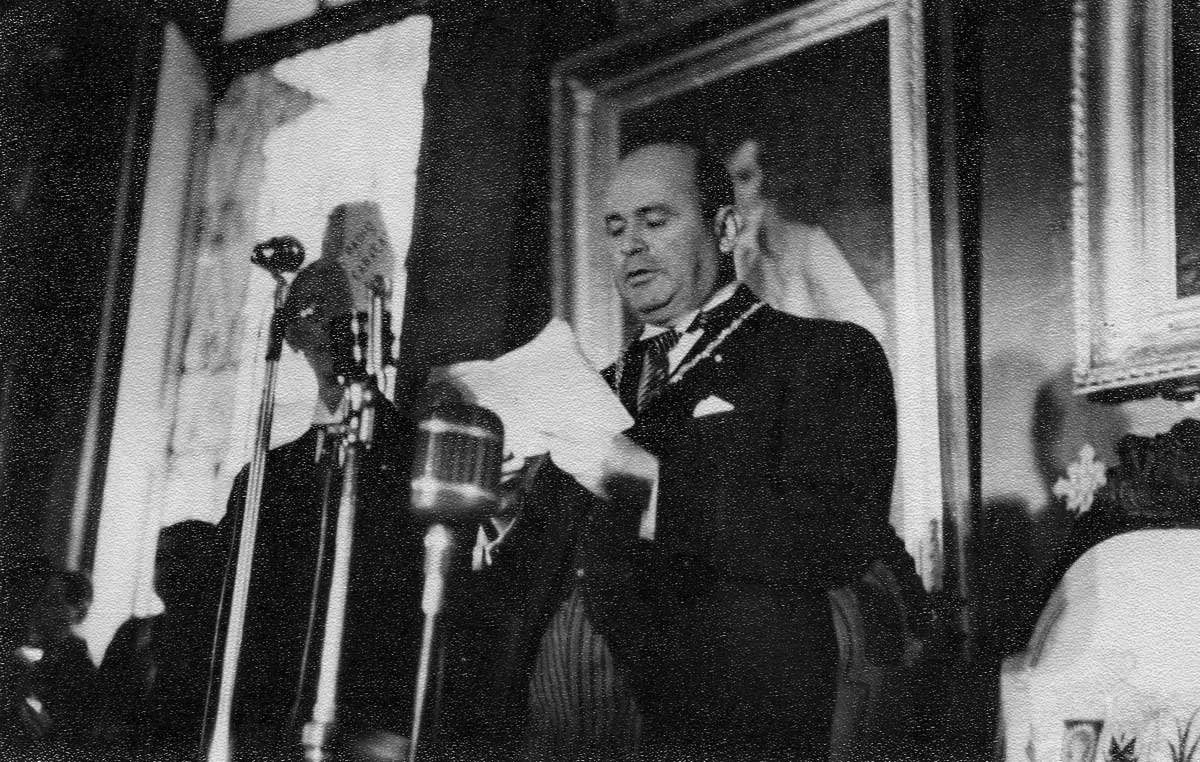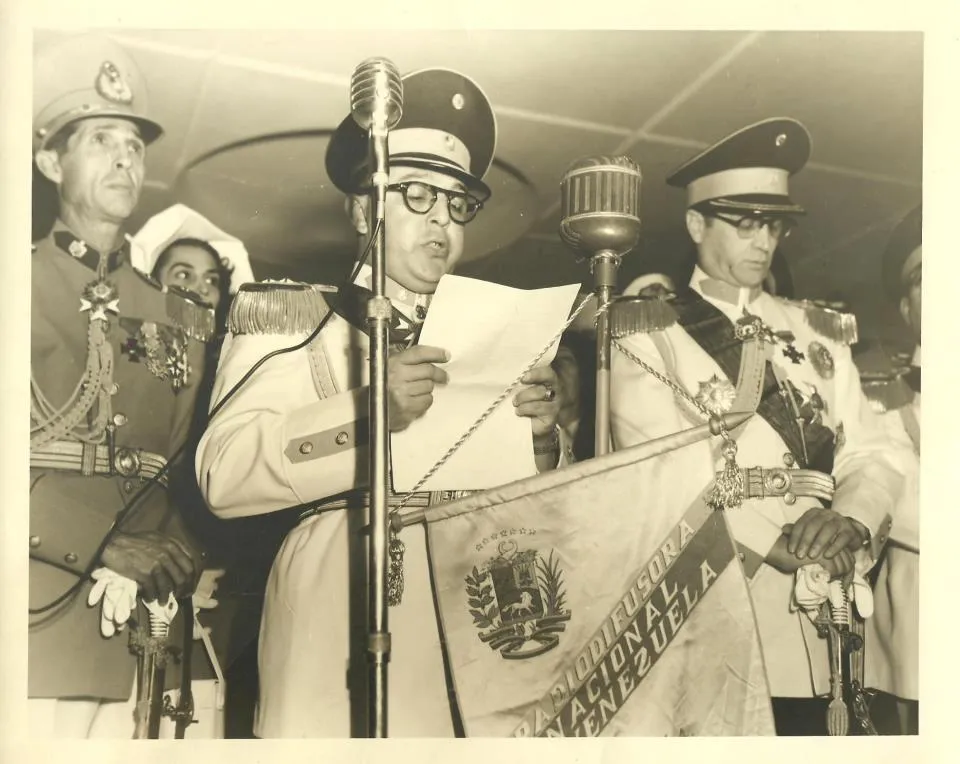
The dictatorship of Pérez Jiménez brought important benefits to Venezuela in matters economic, social and infrastructural. However its success as an administrator of public goods was breaded by hardness and its Government's crackdown.
The political life of Marcos Pérez Jiménez started with his role in the coup d'etat of 1945 against Isaias Medina Angarita. "Revolutionary Governing Board" chaired by Rómulo Betancourt appointed him as Chief of section of the staff of the army. Under this position, on November 24, 1948, Pérez Jiménez promoted a coup against Rómulo Gallegos, who barely eight months had been democratically elected as President of the Republic.

Isaías Medina Angarita
During the dictatorial rule of the military Junta (which was to be transitional) Pérez Jiménez assumed the position of Minister of Defense. However, Carlos Delgado Chalbaud was murdered by Rafael Simón Urbina and as consequence it, Pérez Jiménez assumed the Presidency of the junta and ascends to power. This was seen in the need to change his name to "Governing Board" due to the designation of the civil Germán Suárez Flamerich, as new President of the Republic.

The military junta in 1948
Now, because it is a transitional Government the Board decided to call elections for November 30, 1952. To win such elections would establish a national constituent Assembly which gave way to a new Constitution. However, when the ruling party: Independent Electoral front (FEI), directed by Pérez Jiménez realized that the Party Democratic Republican Union (URD), headed by Jóvito Villalba and Mario Briceño Iragorry, was who had more reception of votes, the newly-installed Supreme Electoral Council suspended the electoral process. Subsequently, on 2 December Pérez Jiménez proclaimed himself as the winner and therefore Provisional President of Venezuela.
During his Government, Pérez Jiménez was characterized by lead the country effectively but with great repression. It took his own philosophy of "serve and do serve" with a conservative, right-wing, nationalistic and militaristic Government line. Visualized the democracy as the resulting tangible of the Government as soon as a: works public, growing economic and quality of life.
Based on its ideology of the "national Ideal new', Pérez Jiménez insisted that Venezuela should have a purpose that integrate the physical transformation and the integral improvement of citizens. In this regard, the Government of Pérez was one of the most progressive in the Venezuelan history.
During the rule of Perez Jimenez, the national Constitution was promulgated in 1953. In it, the United States of Venezuela passed to be called Republic of Venezuela, thus changing the federalist model by one Republican.
During the Pérez Jiménez Government opposition was constantly threatened and persecuted. Terror gripped each opposing citizens who often were forced to shut their grievances and disagreements for fear the regime.
He period presidential of Perez Jimenez should finish to end of 1957 low the same Constitution that had been made by its Government. Hoping to extend his Government for 5 more years, Pérez Jiménez called a plebiscite on December 15, 1957, in which would decide his continuation in power or not.
The plebiscite was not well received by many sectors that labelled as fraudulent results. None of the opposition political parties recognized the results. Consequently, the 1 of January of 1958 is carried to out a failed coup military that tried to overthrow it.
In this regard, on January 21, the Patriotic Junta called a general strike involving various sectors. Then the Military High Command met to take action. Culminated in a coup on January 23. Therefore, Perez Jimenez fled to Santo Domingo and placing an end to its history as President of the Republic.
source information: http://www.venelogia.com/archivos/10304/